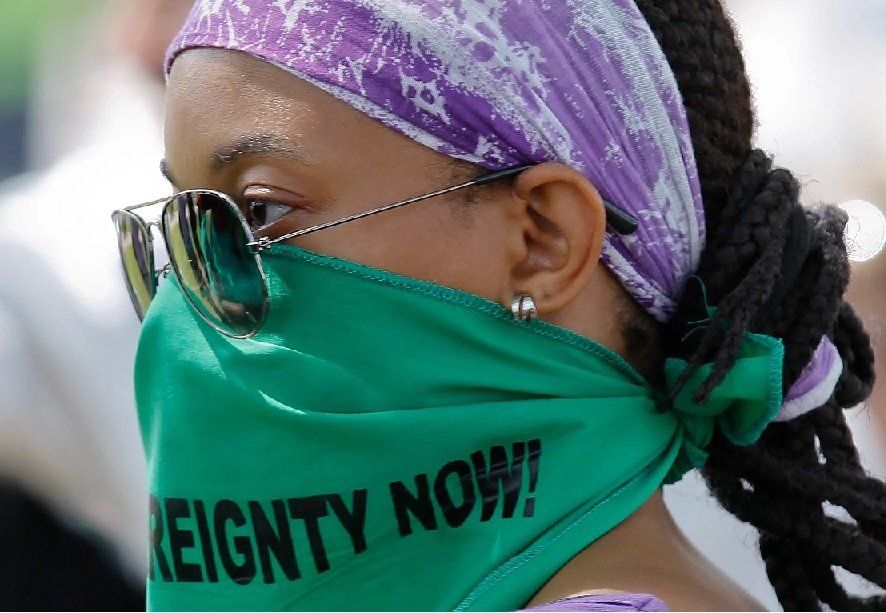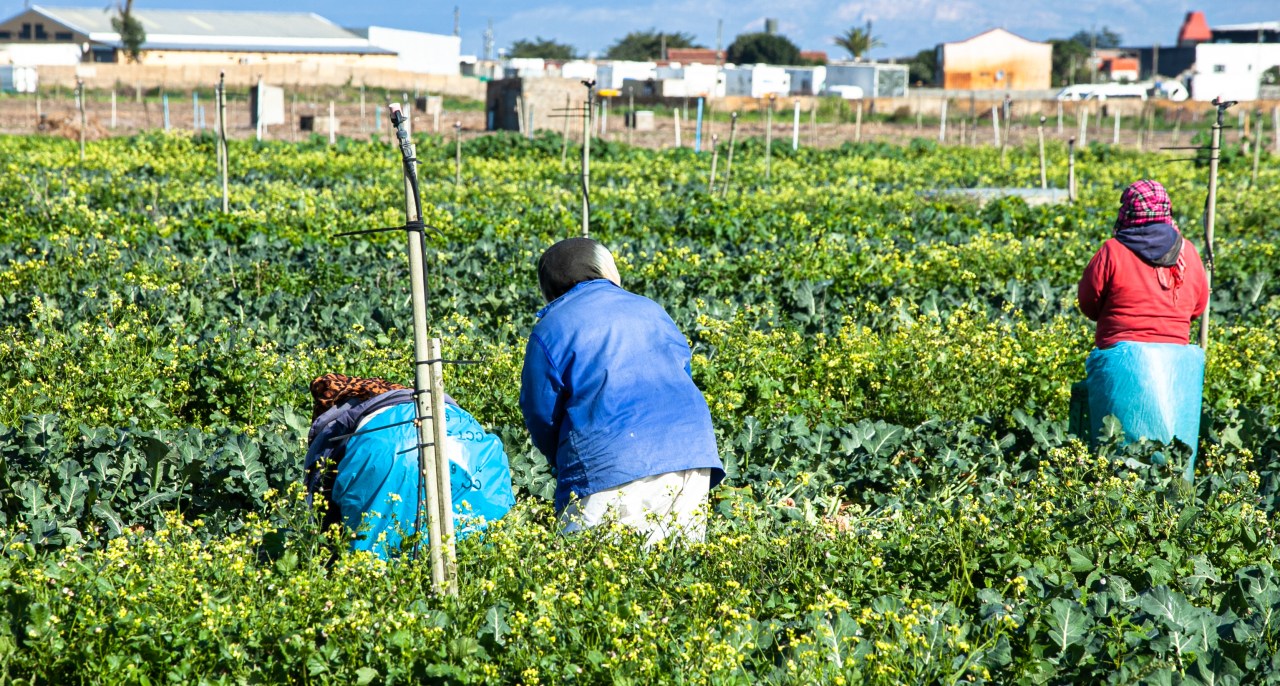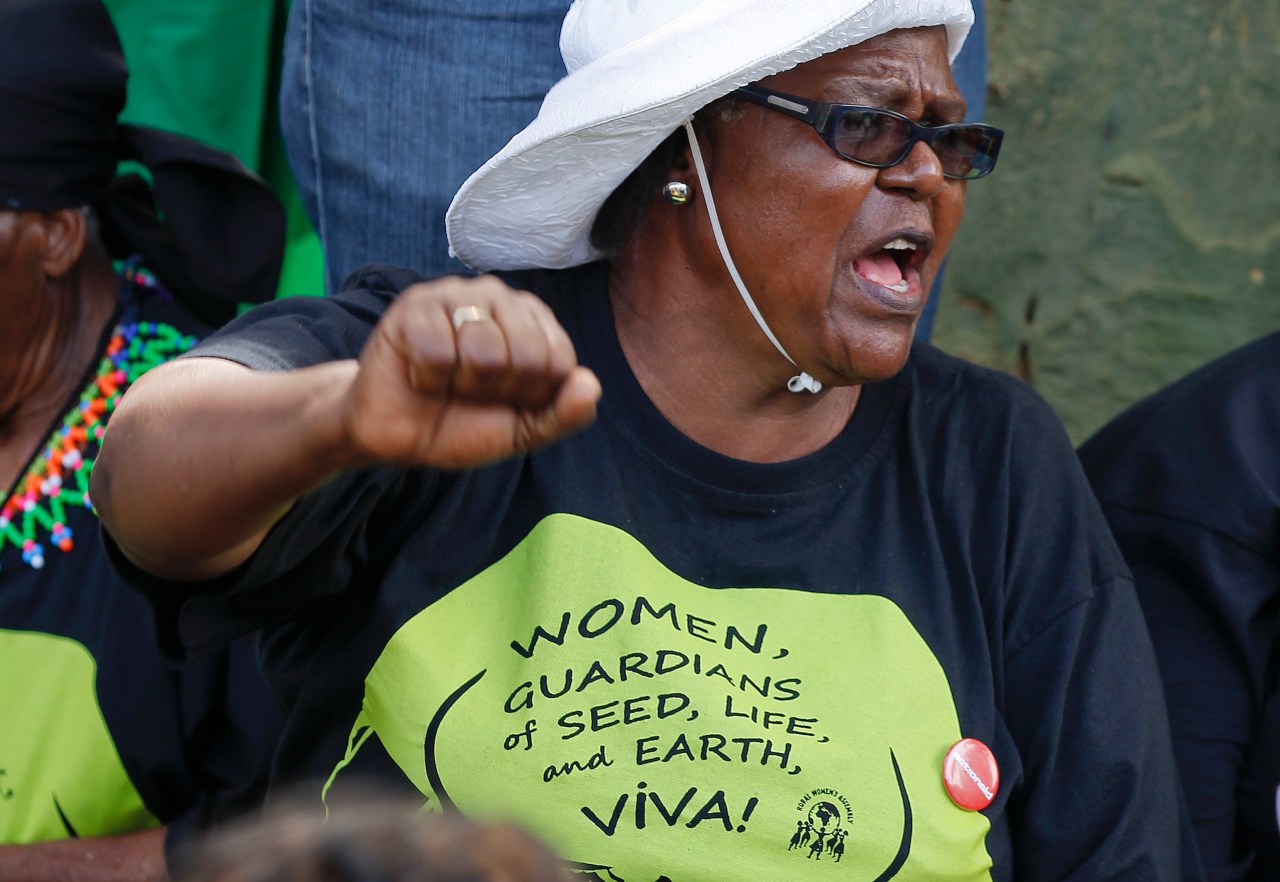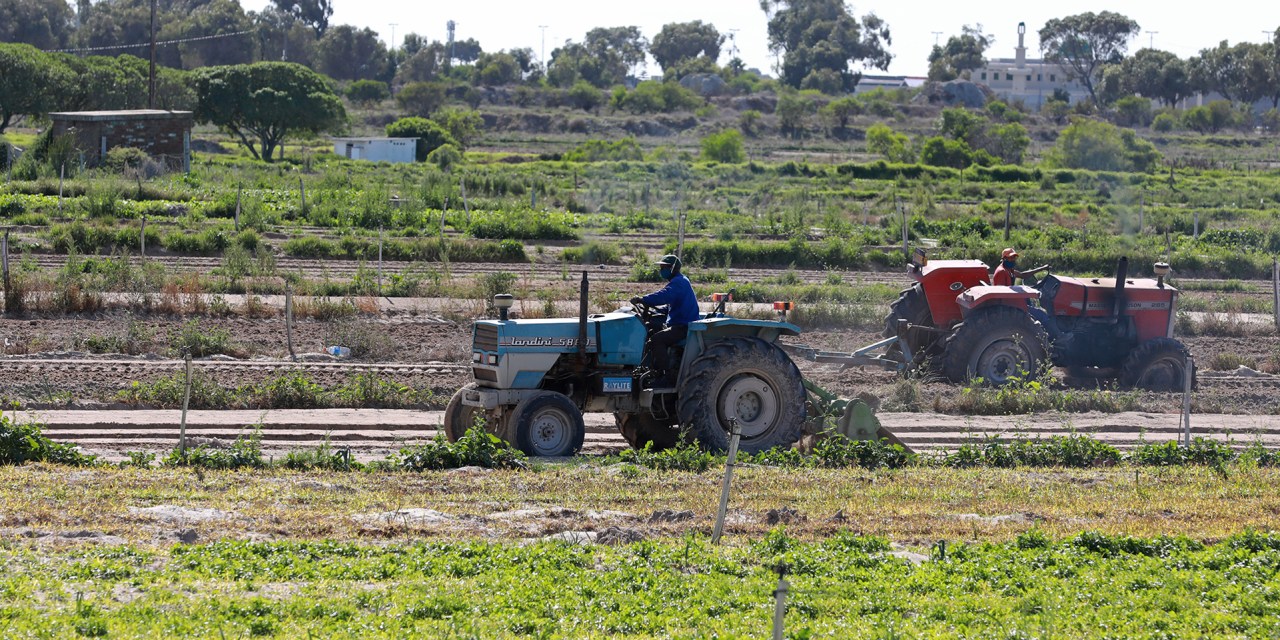South African peasant activists unveil land inequality struggles on global stage in Colombia

First published by Daily Maverick
20 December 2023
Two South African activists recently attended a conference in Bogotá where they pledged to broaden the participation of individuals, especially women, in the fight for food sovereignty.
In a resounding denouncement of enduring land inequality and the outsized influence of South Africa’s commercial sector on food product pricing, two peasant activists, Christina van Wyk from the Northern Cape and Kelly-Jane Marmaan from the Western Cape, members of the Right to Agrarian Reform for Food Sovereignty Campaign, have thrust these critical issues onto the global stage at a conference in Bogotá, Colombia.
Organised by La Via Campesina, the international peasant movement, the conference has convened more than 500 delegates from small-scale and peasant organisations worldwide. Van Wyk and Marmaan’s revelations spotlight the unsettling reality that, despite the dismantling of apartheid, a handful of white commercial farmers maintain an unwarranted grip over the majority of productive farmlands in South Africa.
The Right to Agrarian Reform for Food Sovereignty Campaign, known as the Food Sovereignty Campaign or FSC, is an agrarian social movement operating in the Northern and Western Cape. The FSC is the result of an organisational process initiated by the Surplus People Project, which was established in the 1980s to support communities in their struggles against forced removals by the apartheid state. The FSC is a member of La Via Campesina, along with the Landless People’s Movement of South Africa.

Land and food activists Christina van Wyk (left) and Kelly-Jane Marmaan in Bogotá. (Photo: Rafa Stedile)
Complex struggle for agrarian reform
Colombia has an intricate history that reveals a nation ensnared in the complex struggle for agrarian reform, marked by a tumultuous past that birthed prolonged armed conflict. Initiated by radical peasant movements advocating for equitable land redistribution, the conflict unfortunately metamorphosed, giving rise to paramilitary groups and crime syndicates. It’s a perilous path South Africa must vigilantly avoid.
Although Colombia signed a peace agreement, historical echoes linger, albeit in a muted tone. The current government’s ongoing efforts to expedite land redistribution underscore a commitment to rectifying historical injustices and fostering lasting peace.
One glaring concern passionately articulated by the activists revolves around the disproportionate power exercised by commercial farmers and the retail sector over food prices in South Africa – a deeply entrenched issue that urgently requires attention. The activists vehemently assert the imperative for the formulation and implementation of robust public policies aimed at restructuring and fostering new, equitable relationships between food producers and consumers within the country.

Farmworkers in the Philippi Horticultural Area in Cape Town on 5 July 2021. (Photo: Gallo Images / Ziyaad Douglas)
This pressing matter underscores the urgency for a comprehensive and systemic approach to address the intricate dynamics of the South African food market, ensuring fairness and inclusivity, especially for small-scale producers.
At the core of their message is the critical role played by women in South Africa’s struggle for land reform and food sovereignty. They advocate for safeguarding gender equality and eradicating violence against women, particularly in rural and peasant communities. The activists emphasise the continual empowerment of women within peasant organisations, asserting that peasant feminism should remain a cornerstone strategy in La Via Campesina and their own organisation’s endeavours.

A supporter of the Rural Women’s Assembly protests outside the COP17 climate change conference in Durban on 5 December 2011. (Photo: EPA / Nic Bothma)

Tractors ploughing a field in the Philippi Horticultural Area in Cape Town on 30 April 2020. (Photo: Gallo Images / Nardus Engelbrecht)
Food sovereignty
Moreover, the activists stressed the ongoing importance of popularising the principles of food sovereignty and agroecology in South Africa – a country paradoxically grappling with food insecurity while millions endure hunger. These, they argue, are indispensable tools in building a just and sustainable food system.
Food sovereignty champions the right of people to healthy, culturally appropriate food produced through sustainable methods. It places those who produce, distribute and consume food at the core of food systems, defying the dictates of markets and corporations. One pathway to realising food sovereignty lies in adopting agroecological farming systems, encompassing the social and political dimensions of governing territorial food systems.
The commitment of these activists shines through as they pledge to broaden the participation of individuals, especially women, in the fight for food sovereignty. They assert that this struggle is not just ideological but fundamental for the lives and well-being of communities. As their voices resonate in the heart of Colombia, the call for global solidarity in addressing land inequality rings louder than ever. DM
By Boaventura Monjane
Boaventura Monjane holds a PhD in Postcolonialism and Global Citizenship (Sociology) from the CES/Faculty of Economics, University of Coimbra. He is based at the Institute for Poverty, Land and Agrarian Studies (PLAAS, UWC) as a postdoctoral researcher and is also a fellow of the International Research Group on Authoritarianism and Counter-Strategies of the Rosa Luxemburg-Stiftung. In addition, he is an associate fellow at the Centre for African Studies (CEA, UEM).
